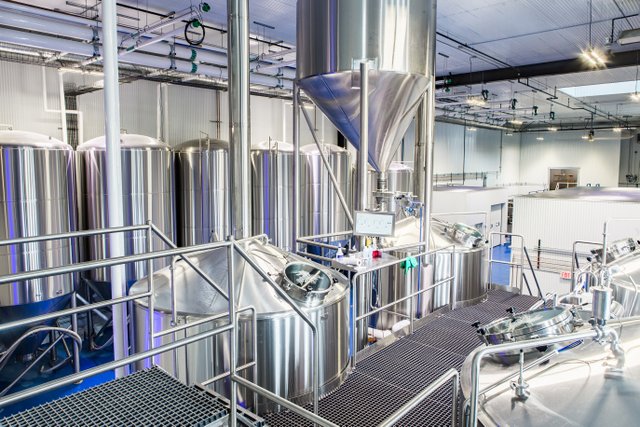
Intelligent automation. It’s the core competency of global German tech brand Festo, but what does intelligent automation mean in the brewing industry? It means Festo builds and sells everything from automated valves for keg and vessel cleaning to systems that ensure 99.999 percent clean compressed air is being used in processing and packaging. From customized process control cabinets to engineering productivity tools that can reduce brewhouse or packaging hall development times, Festo offers a wide range of craft brewery-specific products and services that a lot of brewers aren’t even aware exist.
So, I took the opportunity to chat with Shane Loer, industry segment specialist for food and packaging at Festo, to better inform our readership about this company’s growing line of cool brewhouse products.
Hey Shane, thanks for taking the time to talk with Craft Brewing Business. Maybe as a starter, can you give us an overview of Festo and specifically its focus on the craft beer industry?
We have a proud heritage in the brewing industry. First off, Festo is established as a global standard for brewery pneumatics. With 30,000 catalog products, we can deliver the best solution. Whether pneumatic or electromechanical, we are the perfect partner for your brewery automation projects and machinery. With a large team of field sales engineers, a North American distribution center and a broad network of distributors, Festo has the ability to deliver technology, innovation, quality products and training. Solutions for the craft breweries range from control systems for greater process consistency and improved management of ingredients to automated flow control valves to hygienic and clean design products meeting FDA standards for sanitary conditions in washdown environments
Very cool. In your opinion, what is your hottest, newest or coolest product right now when it comes to the brewing industry? Tell us why it’s useful and, most importantly, how is it unique and different from the competition on the market.
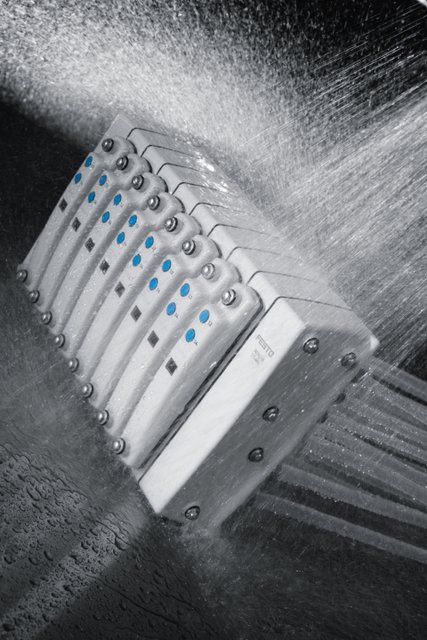
Festo provides a single source for clean design pneumatic automation components for the craft beer industry. One of the company’s top selling products, the IP69K Clean Design MPA-C valve terminal, is an outside the cabinet valve manifold that only requires two cables from the cabinet, reducing the wiring cost associated with having centralized control cabinets. One of the cables is for Ethernet communication and the other supplies power. Bulkhead mounting decreases installation time, eliminates leak points, and reduces hardware costs.
The MPA-C is high pressure washdown (IP69K) rated. Multiple seals, corrosion resistant materials and the design of the unit’s electrical connections prevent premature failure. Festo also offers an assortment of automated angle seat valves for controlling the flow of steam, water or cleaning solutions. This series of valves is economical and simple to install. It is suitable for wide ranges of pressures and temperatures of liquids and gasses. Festo NPQH/PUN-H fitting and tubing combination are also popular products. They feature FDA food industry approved materials.
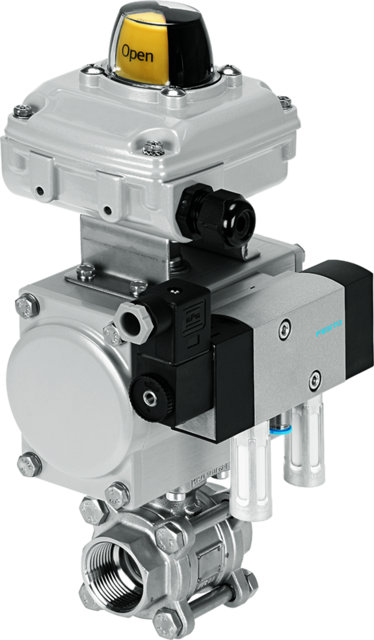
Let’s get some advice. A lot of craft brewers and small business owners might not understand some of Festo’s automation processes. What insights can you share with them?
We like to say automate processes whenever and wherever it’s possible. Automation gives the brewmaster precise control over the process, ensures consistency and repeatability and lowers consumption of ingredients to an optimum level. Keeping regular production maintenance schedules on machinery and making sure any pneumatic system is supplied with clean/dry air will ensure less unexpected downtime and increase the life of the components in any automated piece of machinery.
Let’s get some insights. What do you see happening in the marketplace right now? From your perspective as a manufacturer and service business, what trends do you see coming and going in the craft beer market?
Larger breweries will strive to grow through regional distribution featuring a combination of favorites and seasonal and limited series. Smaller breweries will endeavor to make their taprooms more profitable, perhaps adding a small canning line and increasing sales to local bars and restaurants. A key to both strategies will be the low operating costs, high quality and consistency between batches that automated processes deliver. Being able to dial-in brewing recipes to be consistent and having automated machinery to clean kegs and package product are major steps that help brewers “multi-task” and be more efficient with their time.
Let’s get some credentials. Tell us a story about a brewery you’ve recently worked with. Tell us the products and parameters involved in this business relationship. Make it a highlight example of your abilities and products.
Ryan Williams, project manager of Stone Technologies, saw an opportunity at Lewis and Clark Brewing Co. to speed up installation and lower total installed costs. Rather than running massive bundles comprised of hundreds of compressed air hoses, as well as sensor, power and communication cables through the brewhouse to a centralized control panel, he suggested utilizing an advanced communications and control technology from Festo. This technology reduced the hundreds of cables down to a total of 10 — five Ethernet cables and five power lines — running from the five equipment skids to the control panel.
The brew kettle, lauter tun, hot liquor, mash mixer and whirlpool skids would each be served by a single Festo CPX control assembly of solenoid valves and discrete and analog inputs and outputs (I/O) on each vessel. Each assembly would be mounted without the need of an expensive closed control panel under grated walkways adjacent to each skid. Compressed air lines to the automated valve assemblies and I/O cabling from the sensors on each skid would be routed to the CPX unit. Then only two cables per skid would need to be routed back to the utility room housing the control panel and the Allen-Bradley ControlLogix brewhouse controller.
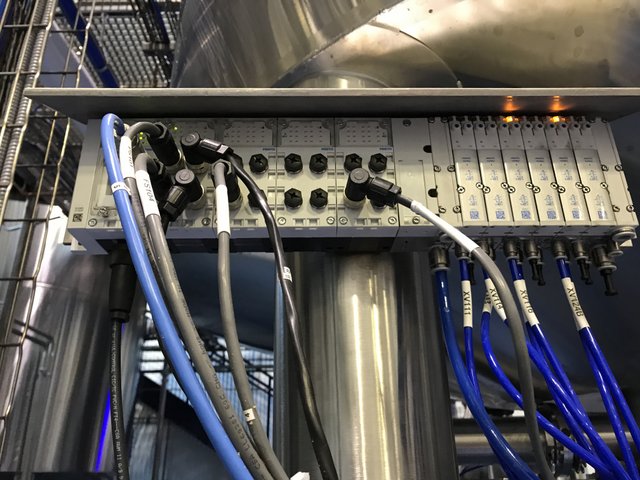
Fewer cables meant faster installation and less room for potential wiring errors during installation. Williams estimated that the time to wire the system took 30 to 40 percent less time with CPX assemblies than it would have without them. Shorter runs of compressed air lines to the automated valves lowers overall energy consumption. Fewer lines allows faster troubleshooting during operation. In addition to the installation savings, the brewhouse has less clutter and is easier to keep clean, an attribute that Lewis & Clark Brewing Company Founder Max Pigman wanted for his showplace brewhouse. Each Festo CPX assembly automates the opening and closing of ball and butterfly valves via compressed air actuation and communicates data from discrete and analog sensors involved with flow, pressure, and temperature to the Allen-Bradley controller.
The brewmaster now creates a recipe utilizing the system’s computer interface. Recipes are simply a sequence of steps that the system will automatically perform within the parameters of time, pressure and flow associated with each sequence. For example, during mashing in, there is a specific strike temperature that the brewmaster wants to achieve for each recipe and those recipes are already programmed. The program automatically adjusts and modulates the volume and rate of mixing the hot liquor tank water with charcoal-filtered city water to achieve the temperature required.
The Lewis and Clark brewhouse team found that the precision of the automated system led to greater control over the brewing process, a process that can require more than 100 precisely defined sequences per batch.

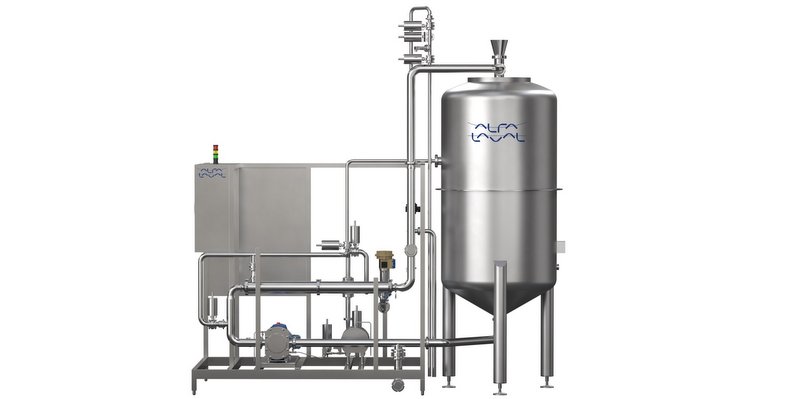
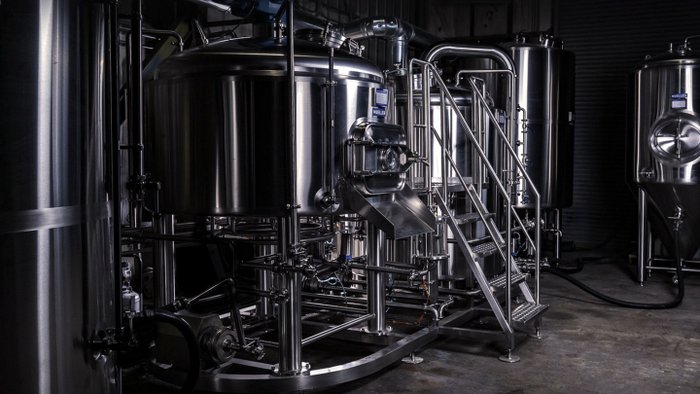



Noah Mitchell says
Craft Brewing Business at CODI manufacturing we primarily use Festo for our counter pressure canning lines used in craft breweries throughout the US.